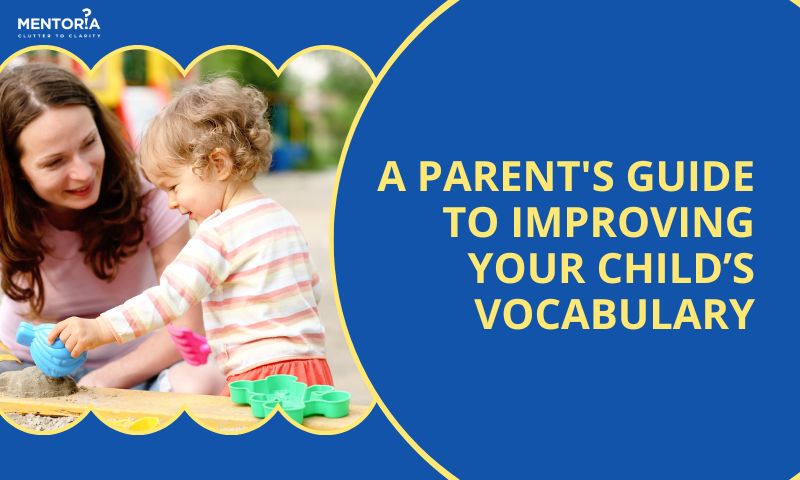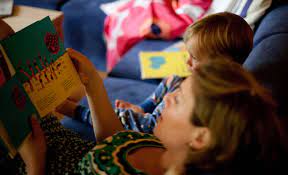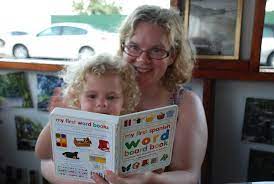A Parent’s Guide To Improving Your Child’s Vocabulary

Are you looking to spend quality time with your child while also getting them to learn? Why not help them improve their vocabulary?
Having a good vocabulary is important for good communication skills (be it in writing or speaking) – something that your child can find highly helpful further on in life.
The best time to improve and build vocabulary is during childhood. The younger children are, the more receptive their minds are to learning. It is for this reason that children can learn a language by listening to it with more speed and proficiency than any adult in the later parts of their lives.
In these early years – when a child is in the elementary school stages – new words can be taught easily and effectively in a way that they become grounded and unforgettable. There are multiple ways to do that, and that is what this post is about.
We’re going to be looking at some ways and methods that you can use to improve your child’s vocabulary and improve their linguistic grasp on the English language (or any other lingo, for that matter).
Vocabulary Building Exercises
One of the ways in which you can build your child’s vocabulary is by doing online vocabulary-building exercises.
Dull texts and boring books aren’t the way to get a child’s interest. You have to make the learning process fun and enjoyable.
Online exercises exist in different forms and styles – and they tick both those boxes.
One certain type of exercise that you can try out is vocabulary quizzes. There are many different websites and online platforms where you can find vocabulary quizzes. The quizzes have a simple working to them. A word is shown along with multiple other choices. The user has to pick the synonym for the word. If the word selected is corrected, the quiz proceeds, and if the word is incorrect, then the correct option is shown along with an explanation of the meanings.
Flashcards are another similar exercise. There are sites available where you can go and get a whole collection of flashcards to riffle through. Flashcards basically have a word written on one side and the meaning on the other. This can be very helpful as a vocab-learning exercise. You can have your child read one side with the meaning and then flip it to learn the corresponding word. Or, you could do it the other way around.
Online Paraphrasing Tools
As we said, children aren’t won over by dull and boring teaching methods. You have to make things enjoyable.
Keeping that in mind, one effective method to build your child’s vocabulary is to use online paraphrasing tools. It sounds strange and unorthodox but it can really work out. We will explain how.
Paraphrasing tools are made to paraphrase text. The name makes that much obvious.
When the text is paraphrased, different types of changes are made to it. One of the simplest and basic changes that almost every other tool makes is synonymising.
Synonymising refers to the process in which the words in the text are replaced with suitable alternatives. Here is what this looks like in action:
In the image above, we’ve used a tool called Paraphraseonline. As you can see, the changes made in the text are quite smart and intelligent. That is because this particular tool that we’ve used is based on AI.
Coming back to the point, here is what you can do:
- You can take a passage that your child can easily understand. You can either have them write it out themselves, or you can take it out from a storybook or a textbook, etc.
- Then, you have to pick an AI paraphrasing tool and paraphrase the passage using it. When you do that, the words in the passage will be replaced by their synonyms.
- You can then show the rephrased version to your child and explain the new words to them. The benefit of learning words in this way is that when the new words are used in the same way and setting as the original ones, their meaning and context is easier to understand.
Using Online Dictionaries and Thesauri
Although it takes some effort to make this method engaging and enjoyable, it can be very helpful and educative. There are many online dictionaries and thesauri that you can find on the Internet. Using them is the same as using one in hard form – except for the hassle of handling all the pages, etc.
You can use them to build your child’s vocabulary through different types of exercises. For example, with an online dictionary or thesaurus, you can:
- Have your child learn a specified moderate number of words daily. You could start with a certain alphabet and have your child work through it, doing 5 or 6 words at a time.
- Have your child learn synonyms for the words they already know (using a thesaurus). This is also a good way to build vocabulary. However, this focuses on learning synonyms and variations for the words the child already knows rather than new ones from scratch.
Final Thoughts
Helping your child build their vocabulary is a simple and easy task – but it can be very rewarding in the future. Your child can learn to effectively communicate and do well in their studies.
There are different methods that you can try out for vocabulary building. In the post above, we’ve talked about three of them. But if you need additional guidance on getting your child to their full potential, Mentoria can help. With our top-notch counsellors who are ever-ready to bring out the best in individuals through hyperpersonalised career guidance and counselling, you’ll not just have clarity about you child’s future, but will also get insights on the skils your child needs to hone. So don’t wait, let’s talk!









